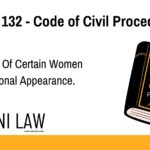In a landmark ruling on July 14, the Supreme Court overturned a Punjab & Haryana High Court judgment that barred the use of secretly recorded phone conversations in divorce proceedings. The apex court held that such recordings between spouses are admissible evidence under the exception provided in Section 122 of the Indian Evidence Act, 1872. The bench, led by Justices BV Nagarathna and Satish Chandra Sharma, ruled that marital privilege cannot override the right to a fair trial under Article 21 of the Constitution. The case involved a husband presenting recorded calls to support his cruelty allegations. The High Court had earlier rejected this, citing breach of privacy. However, the Supreme Court clarified that Section 122 doesn’t recognize privacy between spouses in legal disputes. The court also dismissed concerns that allowing such evidence could harm domestic harmony, stating that such snooping often indicates an already broken marriage.
The bench emphasized the importance of truth and fairness in matrimonial cases and allowed the use of electronic evidence, provided its authenticity is verified.








